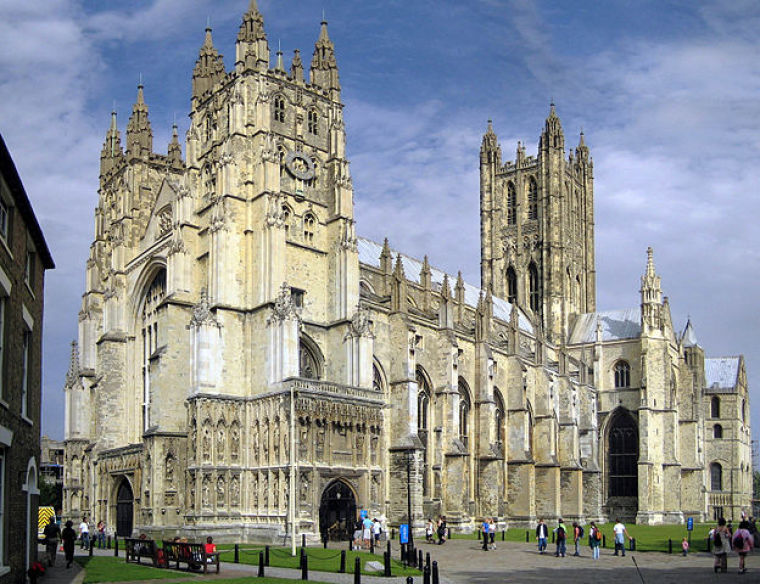Over 9 out of 10 British Christians feel their faith is marginalized, new survey finds

A new survey conducted by Premier Christian Communications has indicated that more than nine out of 10 Christians feel that their faith is being marginalized in British society.
The "State of the Faith" study found that 93 percent of about 12,000 Christian respondents believe that Christianity is being marginalized.
As many as 80 percent of the respondents feel that Christianity is not given equal respect, while 50 percent say they have experienced prejudice. Twenty-six percent said that they are unable to be open about their faith.
Tim Dieppe, Head of Public Policy at Christian Concern, which provides legal support to Christians, said the findings reflect the organization's experiences over the years.
"People try and say that our cases are the exception and extraordinary cases," he stated. "I think what [Premier's] research shows is that it's the tip of the iceberg and actually underlying this there is a very strong ground swell of feeling and experience of prejudice or marginalisation," he added.
The study also found that 67 percent of the respondents say that it is not considered acceptable in society for Christians to share their faith.
The latest figures also indicated that there is a generational gap in views regarding Christian marginalization. As many as 94 percent of pensioners agreed that Christianity is being marginalized in British society compared to only 77 percent of 15 to 19-year-olds.
However, as many as 70 percent of respondents aged 15–19 said they had experienced prejudice because of their faith, compared to just 51 percent of pensioners.
"It's clear that we are not the liberal accepting society we think we are if we don't tolerate and accept everyone, including Christians," Premier CEO Peter Kerridge stated.
"This survey clearly indicates how it feels to be an ordinary Christian today. I suspect that other faith groups may have similar stories to tell," he added.
Alex Cunningham, a Christian and Labour politician, said that the survey result was a "frightening statistic," noting that efforts by believers to challenge negative perceptions among non-believers could reduce the number of Christians who feel marginalized.
"We can all talk about them [Christian values] but actually doing the practical things - I think those are the things that change [that] perception," he said.
The survey came about a month after Tim Farron resigned as the leader of the Liberal Democrats, saying he could no longer do his job because of the hostility to his faith.
Farron, an evangelical Christian who has served as head of the Liberal Democrats since 2015, drew criticisms during the General Election for failing to answer questions about his views on homosexuality.
He clarified that he supported same-sex marriage and LGBT rights, but he declined to say whether or not he believed homosexuality is a sin. The politician continued to face questions in interviews even after he stated that he did not believe gay sex is a sin.
 Christians don't have to affirm transgenderism, but they can’t express that view at work: tribunal
Christians don't have to affirm transgenderism, but they can’t express that view at work: tribunal Archaeology discovery: Medieval Christian prayer beads found on Holy Island
Archaeology discovery: Medieval Christian prayer beads found on Holy Island Presbyterian Church in America votes to leave National Association of Evangelicals
Presbyterian Church in America votes to leave National Association of Evangelicals Over 50 killed in 'vile and satanic' attack at Nigerian church on Pentecost Sunday
Over 50 killed in 'vile and satanic' attack at Nigerian church on Pentecost Sunday Ukrainian Orthodox Church severs ties with Moscow over Patriarch Kirill's support for Putin's war
Ukrainian Orthodox Church severs ties with Moscow over Patriarch Kirill's support for Putin's war Islamic State kills 20 Nigerian Christians as revenge for US airstrike
Islamic State kills 20 Nigerian Christians as revenge for US airstrike Man who served 33 years in prison for murder leads inmates to Christ
Man who served 33 years in prison for murder leads inmates to Christ


 Nigerian student beaten to death, body burned over ‘blasphemous’ WhatsApp message
Nigerian student beaten to death, body burned over ‘blasphemous’ WhatsApp message 'A new low': World reacts after Hong Kong arrests 90-year-old Cardinal Joseph Zen
'A new low': World reacts after Hong Kong arrests 90-year-old Cardinal Joseph Zen Iran sentences Christian man to 10 years in prison for hosting house church worship gathering
Iran sentences Christian man to 10 years in prison for hosting house church worship gathering French Guyana: Pastor shot dead, church set on fire after meeting delegation of Evangelicals
French Guyana: Pastor shot dead, church set on fire after meeting delegation of Evangelicals ‘Talking Jesus’ report finds only 6% of UK adults identify as practicing Christians
‘Talking Jesus’ report finds only 6% of UK adults identify as practicing Christians Mission Eurasia ministry center blown up in Ukraine, hundreds of Bibles destroyed: 'God will provide'
Mission Eurasia ministry center blown up in Ukraine, hundreds of Bibles destroyed: 'God will provide' Church holds service for first time after ISIS desecrated it 8 years ago
Church holds service for first time after ISIS desecrated it 8 years ago Burger King apologizes for 'offensive campaign' using Jesus' words at the Last Supper
Burger King apologizes for 'offensive campaign' using Jesus' words at the Last Supper Uganda: Muslims abduct teacher, burn him inside mosque for praying in Christ’s name
Uganda: Muslims abduct teacher, burn him inside mosque for praying in Christ’s name